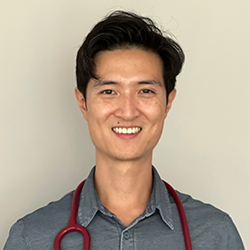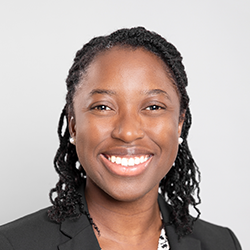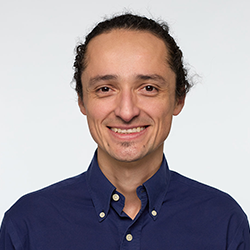
The TD Insurance Meloche Monnex Scholarship program offers three scholarships of $7,500 each annually to provide financial assistance to engineers returning to university for further study or research in a field other than engineering. Candidates must be accepted or registered full-time in a Faculty other than Engineering. The field of study chosen should favour the acquisition of knowledge pertinent to enhancing the performance of the candidate in the engineering profession.
Meet the 2024 recipients of the Engineers Canada – TD Insurance Meloche Monnex Scholarship
Ivan Au, P.Eng.

Doctor of Medicine
University of Alberta
Ivan Au is bridging his engineering experience with medical training, bringing a unique perspective to healthcare. Ivan’s journey through materials engineering has uniquely equipped him with a skillset directly transferable to the medical field, particularly in orthopedic surgery and radiation oncology.
Ivan has embarked on a pivotal research project centered on tissue engineering, investigating the role of a specific gene in the development of osteoarthritis among women. Drawing on his understanding of fracture mechanics and material integrity, Ivan applies engineering principles to enhance patient outcomes in orthopedic care. Additionally, his experience with radiation used in materials characterization naturally aligns with its application in radiation oncology, where similar principles are used to treat cancer patients. Ivan envisions a career collaborating with engineers across industry and academia to advance healthcare innovations that are both compassionate and cutting-edge.
Yena Bassone-Quashie, P.Eng.

PhD in Environmental Applied Science and Management
Toronto Metropolitan University
Flooding is a growing concern for municipalities across Canada and is expected to worsen due to climate change. In Ontario, it is identified as the most significant natural hazard in terms of property damage, civil disruption, and death. Yena Bassone-Quashie’s research explores how long-term adaptive infrastructure planning approaches (AIPs) can be integrated into municipal climate change and flood/stormwater management (SWM) infrastructure plans and policies to increase flood resilience and climate adaptation in Ontario municipalities.
Introducing flexible, adaptive and institutionally appropriate long-term SWM/FM infrastructure plans and policies allows municipalities to be more prepared for and responsive to an unpredictable climate future while increasing their current and future flood resilience. Yena’s work has the potential to result in large-scale shifts in strategic climate and infrastructure policy and planning approaches in Ontario and across Canada. The interdisciplinary background of her education, career, and volunteer activities have enabled her to develop a multifaceted technical and practical skill set in both engineering and policy studies, which is essential in her current research.
Joahnn Hernando Palacios Rios, ing., M. Sc.

Université Laval
PhD in Soil Science and the Environment
Joahnn Hernando Palacios Rios’ research project, “Living Laboratory – Carbon neutral milk”, is aimed at reducing GHG emissions in agriculture. By collaborating with 20 dairy farms in Quebec, he is striving to develop methods that are simplified, robust and reliable to measure GHG and ammonia emissions. These methods will be implemented on farms to determine their specific emission factors with a goal of helping dairy producers and the agricultural community with the tolls they need to reduce the carbon footprint of milk. This project will contribute to the sustainable development of agriculture and food sovereignty not only in Quebec, but also on a national scale.
As a researcher in agri-environmental engineering, Joahnn has witnessed the importance of these challenges and their impact on the sustainability of agriculture. The work undertaken will have a significant impact on providing tools and practical knowledge to dairy producers and the agricultural community. This study will also contribute to the advancement of engineering by providing innovative solutions and efficient practices to reduce greenhouse gas (GHG) emissions in the agricultural sector, in particular dairy production.


